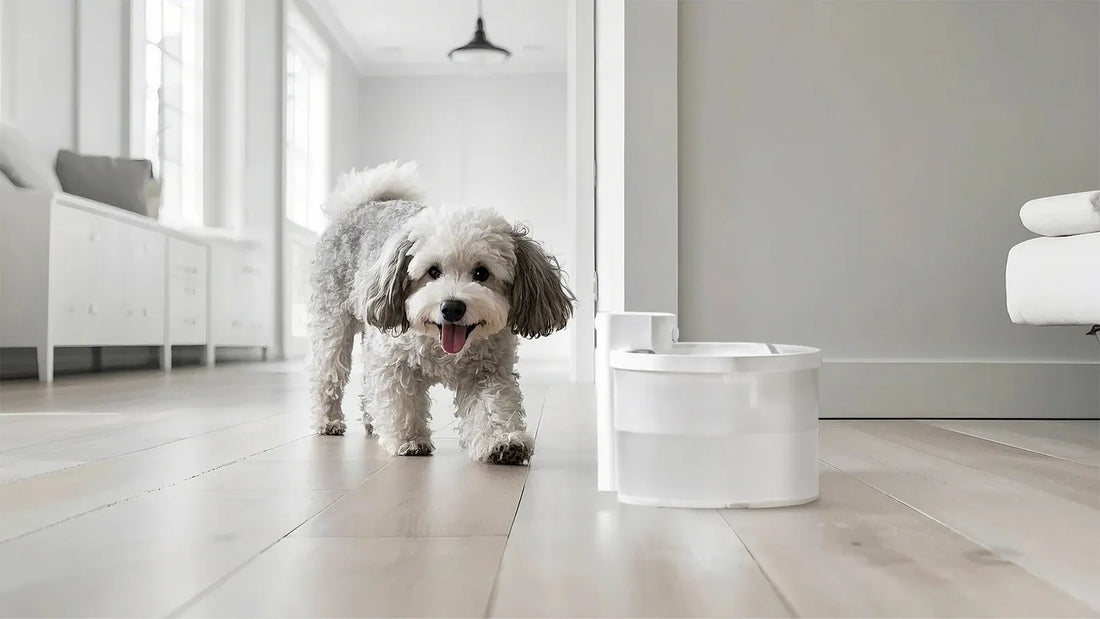When your senior dog stops eating but continues drinking water, it can be a cause for alarm. This behavior often signals an underlying issue that requires attention. Understanding the potential causes and knowing how to respond can make a significant difference in your pet's health and well-being.
Common Causes of a Senior Dog Not Eating but Drinking Water
There are several reasons why an older dog might lose its appetite while still drinking water. These can range from medical conditions to environmental factors. Here are some of the most common causes:
- Dental Problems: Senior dogs are prone to dental issues such as gum disease, tooth decay, or oral infections, which can make eating painful.
- Digestive Disorders: Conditions like gastritis, pancreatitis, or gastrointestinal blockages can lead to a loss of appetite.
- Kidney Disease: Kidney issues are common in older dogs and can cause nausea, leading to a decreased appetite while increasing thirst.
- Liver Disease: Liver problems can also result in a lack of appetite and increased water consumption.
- Pain or Discomfort: Arthritis or other sources of chronic pain can make it difficult for a dog to eat comfortably.
- Stress or Anxiety: Changes in the household, such as moving or the arrival of a new pet, can cause stress that affects eating habits.
When to Seek Veterinary Help
If your senior dog is not eating but drinking water, it's essential to monitor the situation closely. While some causes may resolve on their own, others require professional intervention. Here are some signs that indicate it's time to consult a veterinarian:
- Persistent lack of appetite for more than 24 hours
- Vomiting or diarrhea
- Lethargy or weakness
- Visible weight loss
- Changes in behavior or mood
Early diagnosis and treatment can prevent more severe health complications, so don't hesitate to seek professional advice.
Practical Steps to Encourage Eating
While addressing the root cause is crucial, there are several steps you can take to encourage your senior dog to eat:
- Offer Palatable Food: Try warming up the food or offering a different type of food that your dog finds appealing.
- Small, Frequent Meals: Instead of large meals, offer smaller portions more frequently throughout the day.
- Hydration: Ensure your dog has access to fresh water at all times, as dehydration can worsen the situation.
- Comfortable Eating Environment: Create a quiet, stress-free space for your dog to eat.
- Supplements: Consult your vet about appetite-stimulating supplements or medications if necessary.
Preventive Measures for Senior Dogs
Prevention is always better than cure. Here are some tips to help maintain your senior dog's health and appetite:
- Regular Vet Check-ups: Routine veterinary visits can help detect and address health issues early.
- Balanced Diet: Provide a diet that meets the nutritional needs of senior dogs.
- Dental Care: Regular dental check-ups and cleanings can prevent oral health problems.
- Exercise: Moderate exercise can help maintain a healthy appetite and overall well-being.
- Mental Stimulation: Engage your dog in activities that keep its mind active and reduce stress.
By taking these preventive measures, you can help ensure your senior dog remains healthy and happy.
Seeing your senior dog not eating but drinking water can be distressing, but understanding the potential causes and knowing how to respond can make a world of difference. With the right care and attention, you can help your furry friend regain its appetite and enjoy its golden years to the fullest.













